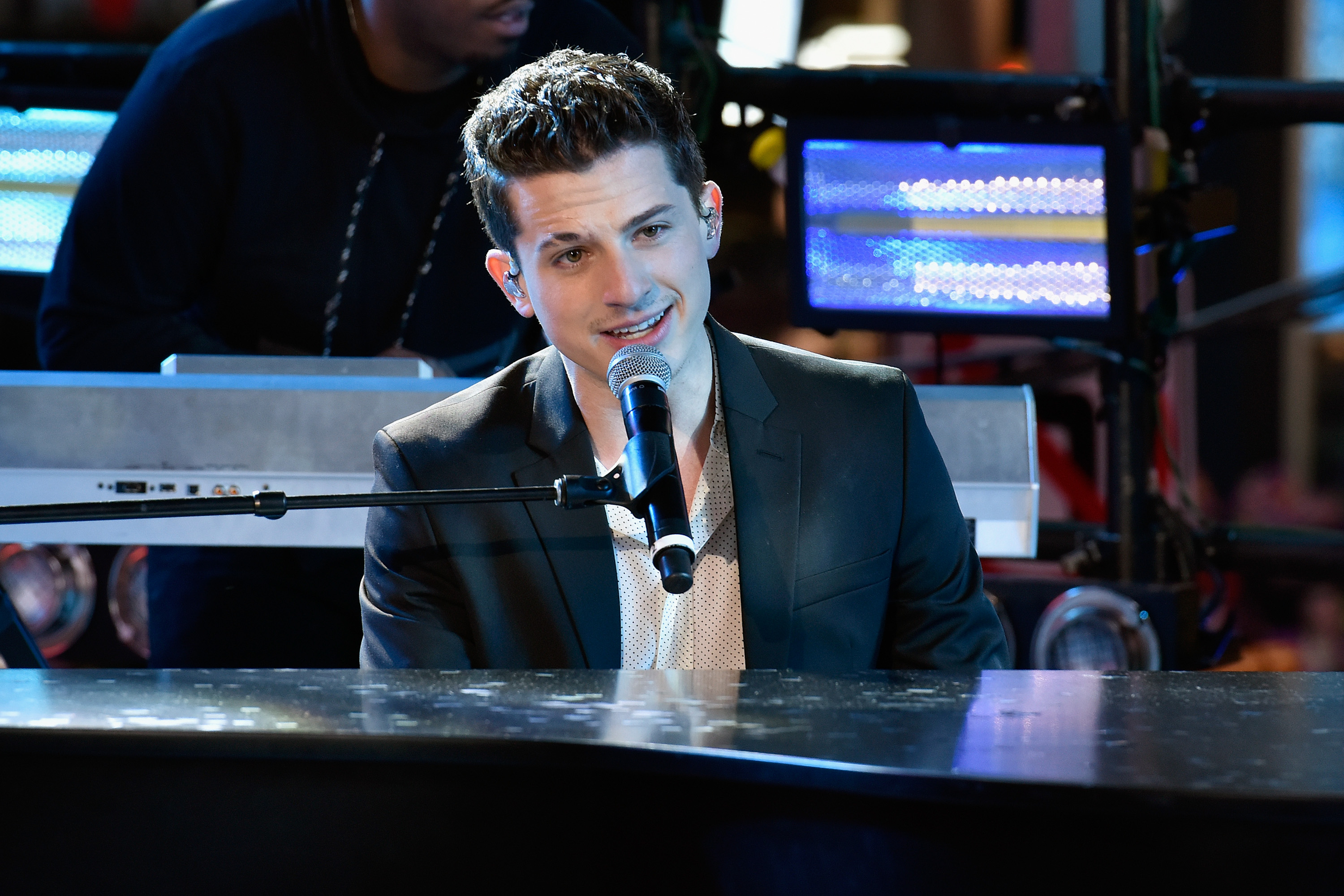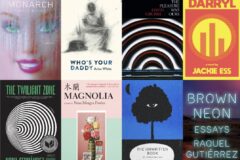Release Date: January 29, 2016
Label: Atlantic
Go ahead, blame Wiz Khalifa. Casting about for some kind of hook delivery system to anchor Furious 7’s lugubrious elegy “See You Again,” the guy who once apologized for sucking alighted upon Charlie Puth, a sad-eyed lad of the Pinelands equipped with a falsetto soon to set grown men blubbering in multiplexes nationwide. Aided by a video eventually topping one billion-plus views, the tune perched stubbornly atop Billboard’s Hot 100 for twelve weeks, and thus the Teflon-voiced Puth became a star. “See You Again” wasn’t much more than a slow, sentimental ooze, but this fella clearly had pipes, and showbiz hustle dictates you introduce yourself to audiences By Any Means Necessary. Still, the newcomer’s followup didn’t suggest an artistic visionary ready to testify. Another duet, this time set alongside the feckless Meghan Trainor, “Marvin Gaye” proved a low-heat ode to high-heat passion, about as edgy as a Broadway revival cast recording and featuring one of the more dubious name-verbing exercises in contemporary pop since Beyoncé let Hillary’s husband off the hook on the gown-all-Lewinsky’d line off “Partition.”
But we’re getting ahead of ourselves. Because look, Charlie Puth has arrived, with his very own album ready for purchase, and he’s been working on this thing like you wouldn’t believe, writing some stuff, producing some stuff, even calling up Shy Carter to see if he had a little free time to swing by for a guest verse. (Shy Carter, unsurprisingly, did have a little free time to swing by for a guest verse.) And as a full-length presentation of the man’s creative convictions, it’s perfect, in a way — sleek, slow, totally anodyne. Nine Track Mind is the kind of pure pap wholly appropriate for a clear-voiced Nice Guy who first carved out his artistic ambitions (let’s just quote his deadpan Wikipedia bio here) writing “intro jingles for the videos of the Vlogger family the Shaytards.” Sounds pretty dreary to me, but I suppose in our post-YouTube creative economy it’s about the equivalent of being a Neil Diamond roadie.
But onto the voice! Puth lives and dies by his falsetto abilities, which are slightly endearing and employed without relief. For better or worse, that tireless slide into the upper register is his musical personality. We’re not in Timberlake or even Bieber territory here — limiting our musical parallels strictly to the competition Puth deserves, Nick Jonas is Stevie Wonder by comparison and the Cash Money-vetted teenster Austin Mahone is West End Records-era Peech Boys.
In fact, the historical example which might best approximate all things Puth is the long-forgotten jazz/pop footnote Johnny Pace, another sweet-eyed Jersey boy who got his shot at the big time thanks to hipster patronage (Chet Baker playing the Wiz Khalifa role), and whose sole album arrived in 1958 bearing gifts of tasteful white balladry before dropping out of sight. Don’t get your hopes up, though — Puth’s got way more than one album in him. He’s no mere hack: jazz piano major, Berklee grad, knows his way around a mixing console, even professed his love for the production work on Steely Dan’s notoriously knotty Pretzel Logic to some L.A. Times profiler — relatively highbrow stuff for somebody palling around with the likes of M-Train.
Still, don’t expect cerebral jazz-boogie supporting esoteric rhymes. The big idea here is ballads, lots of them. There’s oozing ballad “Losing My Mind,” tweedling around in the same stale vein as “See You Again.” There’s the ballad that halfheartedly toys with breaking into a jog, “Some Type of Love.” There’s vaguely retro ballad “Suffer,” which might serve as a warning to the unwary. Plus, there’s big old ballad “One Call Away,” which finds Charlie inexplicably boasting how “Superman’s got nothin’ on me.” Also sorta-scary doom ballad “Dangerously,” in which our hero does battle with a nefarious minx who manages to both tie Puth to the railroad tracks and transform herself into the oncoming train (the M-line perhaps?). And there are a few other ballads, too! In fact, the most standout feature of Nine Track Mind might be its rhythmic consistency, an exercise in deceleration which will come as a relief to those Sam Smith fans distrustful of that bruise-voiced crooner’s occasional excursions outside the valley of the torch song. When Selena Gomez finally swings by for her relatively upbeat duet feature (a breezy poolside whiff of coconut water entitled “We Don’t Talk Anymore”), the mild change in tempo risks bringing on decompression sickness.
Amid all the inoffensive dross of Nine Track Mind — which amounts to one thing you can do with a degree from Berklee I guess — the vexing “Marvin Gaye” is at least worthy of being deemed a genuine irritant; leaving most of the worst lines to M-Train, who as you’ll recall has journeyed far from her ancestral Nantucket homelands to return booty to a beleaguered nation. Try as they might, two glasses of skim milk batting eyes at each other and joking about dogs looking for bones can’t tarnish Mr. Sexual Healing’s legacy. Still, the track remains so simpering that one can’t help but wish for some kind of court-mandated restitution for Charlie and Meghan’s genteel defamation of character. As the hapless Robin Thicke knows only too well, the Gaye estate retains excellent legal counsel.





